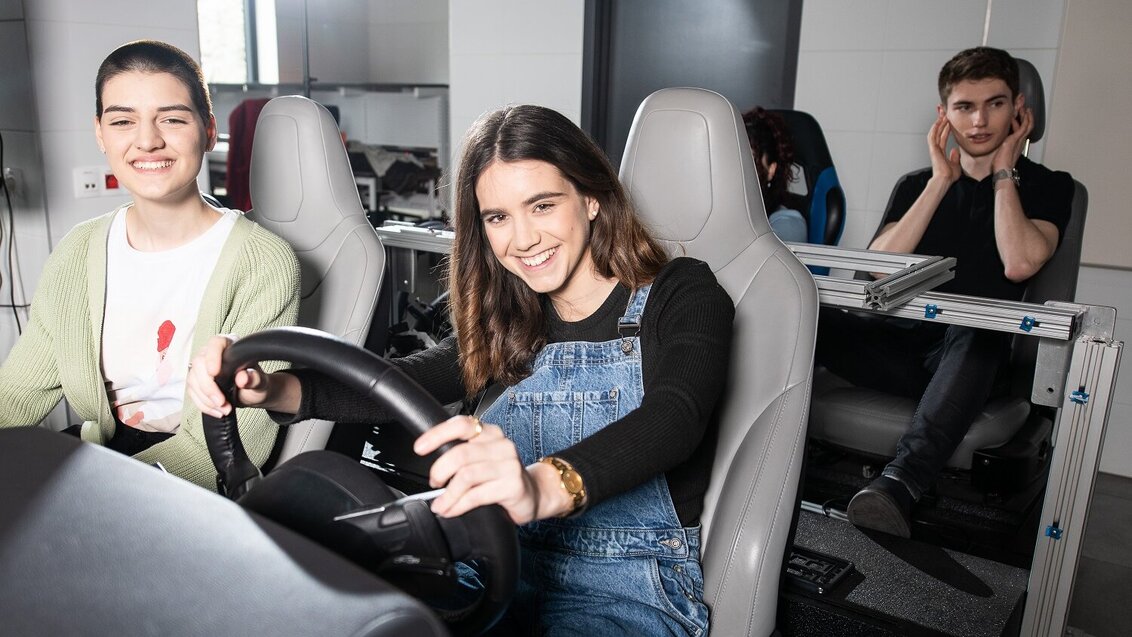We already know the results of the 10th edition of the Student Construction Competition KOKOS. The AGH University Student Research Clubs came home victorious with wins in two categories and one special award.
category: Water
project: Autonomous solar boat Barka
Student Research Club: AGH Solar Boat Team
It is a universal autonomous platform which may be used for research purposes and monitoring natural environment in various types of bodies of water by units and businesses providing services in mapping lake, waterfront, and channel waters, as well as checking the depth of waterways, the quality of water, and the noise level in quiet zones. The project involves the optimisation of the boat’s construction in terms of hydrodynamics, adjusting electronic and communication systems, and applying modern composite materials in hull construction. The use of AI will allow the boat to autonomously recognise its surrounding, omit any obstacles, and take measurements in a given area.
category: Joker
project: Module unmanned aircraft Rura
Student Research Club: AGH Solar Plane
The project connects advanced 3D-print technologies with the use of light and durable materials, such as plywood, extruded polystyrene, PLA and LW PLA filaments, as well as carbon fibres, which enables quick production and easy replacement of components. The plane has a modular construction, easily adaptable to various missions, including advanced operations like the distribution of vaccines. The LW PLA material applied in incremental prototyping, lighter than standard PLA but with similar mechanical and thermal properties, allowed to significantly lower the total weight of the construction without any loss in durability.
special award – Master of Innovation
project: Rocket Turbulencja
Student Research Club: AGH Space Systems
This is the newest iteration of the project initiated in 2018. Turbulencja consists of four compartments: drive, electronics, research payload, recovery system. The rocket is mounted in a launcher and, after equipping all its systems, a multistage tanking process is performed for the rocket fuel to reach the right properties. After meeting all the system parameters, the launch sequence begins. The powered flight phase accelerates the rocket to the speed required for reaching the maximum height of 9 km. Upon reaching the trajectory’s apogee, a drogue parachute is released. Once the rocket reaches a predetermined height, the main parachute gets released, then the rocket falls to the ground.
***
This year, students competed in seven categories and special prizes were awarded in two categories. The results of the Student Construction Competition KOKOS were announced on 12 May 2024 during the final gala held at the Warsaw University of Technology.
The purpose of the KOKOS competition is to select and reward the most talented young constructors, confront their works with the demanding world of business and help in the commercialization of projects and attracting investors.

 AGH University Alumni Day 2024
AGH University Alumni Day 2024  Projects by AGH University Main Library with funding from Scientific Social Responsibility programme
Projects by AGH University Main Library with funding from Scientific Social Responsibility programme  Honouring those we lost this year
Honouring those we lost this year  On energy transformation and more. Distributed Energy Congress
On energy transformation and more. Distributed Energy Congress  Space Technology Centre in newly-established Polish Partnership for Earth Observation
Space Technology Centre in newly-established Polish Partnership for Earth Observation  AGH University to establish AI Factory
AGH University to establish AI Factory 

